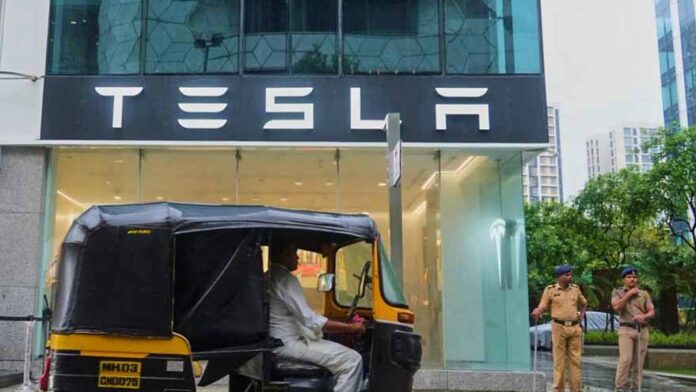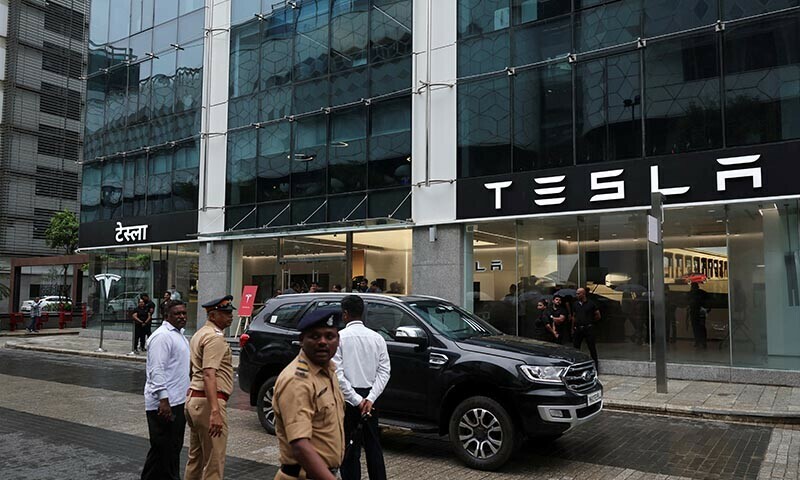Tesla made its first move into India by opening a showroom in Mumbai’s Bandra Kurla Complex and starting sales of its Model Y electric SUV, with prices beginning at Rs 5.99 million ($69,766). The 370 square‑meter space offers visitors a look at Tesla’s design and technology, and it marks a milestone for the company’s entry into the world’s third‑largest auto market.
Premium Pricing Reflects Import Duties
The Model Y arrives in India at higher prices than in other markets. The standard rear‑wheel‑drive model carries a price tag of Rs 5.99 million ($69,765), while the long‑range rear‑wheel‑drive version costs Rs 6.79 million ($79,000). In comparison, buyers in the United States pay $44,990, and customers in China see prices as low as $36,700. These elevated costs stem from a 70 percent tax on fully built electric vehicles.
Tesla is importing the cars from its Shanghai Gigafactory. The company has already shipped six Model Y units along with charging gear and accessories valued at nearly $1 million.
Market Testing Strategy
Tesla’s focus in India centers on building its brand before chasing big sales numbers. Analysts note that the showroom will help Tesla assess demand in wealthy urban areas. It has hired staff in Mumbai and Delhi and plans to open another showroom by late July. Meanwhile, Tesla has secured a 24,566 square‑foot space for customer experiences and warehousing to support its operations in India.
Manufacturing Prospects and Charging Infrastructure
Indian officials have signaled that local manufacturing could lower prices over time, but Tesla has not committed to setting up a plant in the country. The government aims to see electric vehicles make up 30 percent of all car sales by 2030, up from about 4 percent today.
Yet many buyers hesitate because they worry about finding charging stations on long trips. Tesla will need to expand its Supercharger network to ease those concerns before customers feel confident switching to electric models.
Personal Analysis
I think Tesla’s entry into India at high price points shows that it cares more about brand visibility than rapid sales. The company wants to place its name in affluent districts and then watch how buyers respond. India’s auto market values cost more than image, so Tesla must find ways to lower its prices. Local assembly or tariff cuts could help.
If Tesla can add Superchargers along highways and near urban centers, buyers may take the leap. At the moment, the high import tax will stand in the way of growth, and potential customers could stay on the sidelines until costs come down.
Sources: tradingview.com



